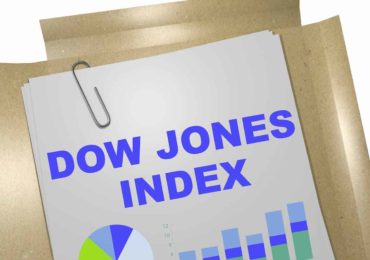One question that is asked a lot is, ‘How much do traders earn on average?’, because you hear all these stories about traders earning millions and millions every year, with billionaires such as Paul Tudor Jones being the centre of attention. The truth of the matter is that people forget to talk about traders that lose all their money.
So, which is it? Do you make a lot of money, or not very much? Let’s start with some basics.
Trading percentages
With trading, everything is about percentages. For example, if you’re going to make 10% in a year and you start with £100, you’re going to make £10. If you’re beginning with £100,000, you can make £10,000. There’s a big difference, but no difference in percentages; the major factor here is the amount of money you’re using to trade.
So of course, if you don’t have much money, you can expect to not be making much money compared to someone who has a lot of money to start with. However, that doesn’t mean that you can’t make a consistently good living from trading.
Trading does not have certain figures to determine how much traders earn
With the trades that happen daily, there are winners and losers on different levels. There is no pay cheque at the end of the month waiting for anyone, but payouts varying with different traders instead. Accepting this factor might be hard as a trader or someone who wants to start trading because of uncertainty, but it’s the truth.
What most people who decide to start trading have come to realise is that trading is not just about understanding how the market works and reading charts, but being able to maintain a clear head in times of trouble. This means that you have to understand and conform to the uncertainty and unpredictability attached to trading.
The limiting factor
This is a determinant when it comes to how much traders earn. Most traders set return-based goals that are poor, which limits how much can be made over time. If you set a 4% monthly return target and you earn 2%, does that mean that you have traded poorly? Definitely not, but it would just have a negative effect on the impact of your trades because it would lower the way you feel about your earning capabilities.
Traders simply open their minds to the uncertainties that come with trading, because they have no control over how much they can get from the market. Another factor most professional traders do not take for granted is flowing with trades as they come and not forcing trades simply because they want to make a certain amount of money.
Comparison syndrome
Trying to have a mental picture of how much traders make on average is simply not the first thing that should come to mind as a trader. Most beginners come across traders who make a lot of money trading. Having this as a benchmark equals high expectations, and when expectations do not tally with manifestations, there is bound to be conflict in the mind, highlighting whether this is the right direction for you or not, seeing that some people are making a lot of money and you, not so much.
The rate of returns in a trader’s income is relative to the risk each and every trader is willing to take, as well as other factors such as drawdowns and market volatility. The best thing most traders try to accomplish is modelling the trading methods of other traders rather than using their personal income as a comparison to others, leading to unrealistic goals and aspirations.
Factors you can use to weigh how much you can earn as a trader
The reason why almost every trader asks the question, “How much do traders earn?”, especially beginners, is because trading is useless without returns, and they want to use the information as a criterion for their own income goals. However, you have to understand that there are some other things that are more important than knowing how much others earn, including:
Knowing where you are as a trader
No matter what level you find yourself at, primarily as a beginner, you should avoid setting return goals because return-based goals lead to irrational decisions. It’s just like a new footballer asking how much Messi earns weekly and trying to use that as a standard; it just does not work that way. You have to learn how to play before you receive payment.
Your major goal should be to learn as much as you can because the more you learn, the more you earn.
Knowing that you are your competition
As a trader, the only competition you have is you; not your mentor, not your friends, just you. You should focus all your energy on trying to become a better trader.
Let me put it this way – instead of trying to find out how much other traders make, try to improve on your trading performance knowing full well that you are the only one that can determine how much you make as a trader.
Bottom line
There is nothing wrong in trying to find out how much others make, but the point is that having that at the back of your mind would either force you to make irrational decisions or demoralise you when you make less than your expectations.
At the moment, there is no information that can help us understand how much traders make on average, as many people lose as much money as they win in the global market. The only thing you can do is to understand the basics of what you want to go into and find a way to establish a plan that would help you make as much as you would have liked.
“How much do traders earn?” is a big question, one which, at the moment, is subject to many factors. Do your best, hope for the best, never expect less, and you will find yourself reaching for the stars.











